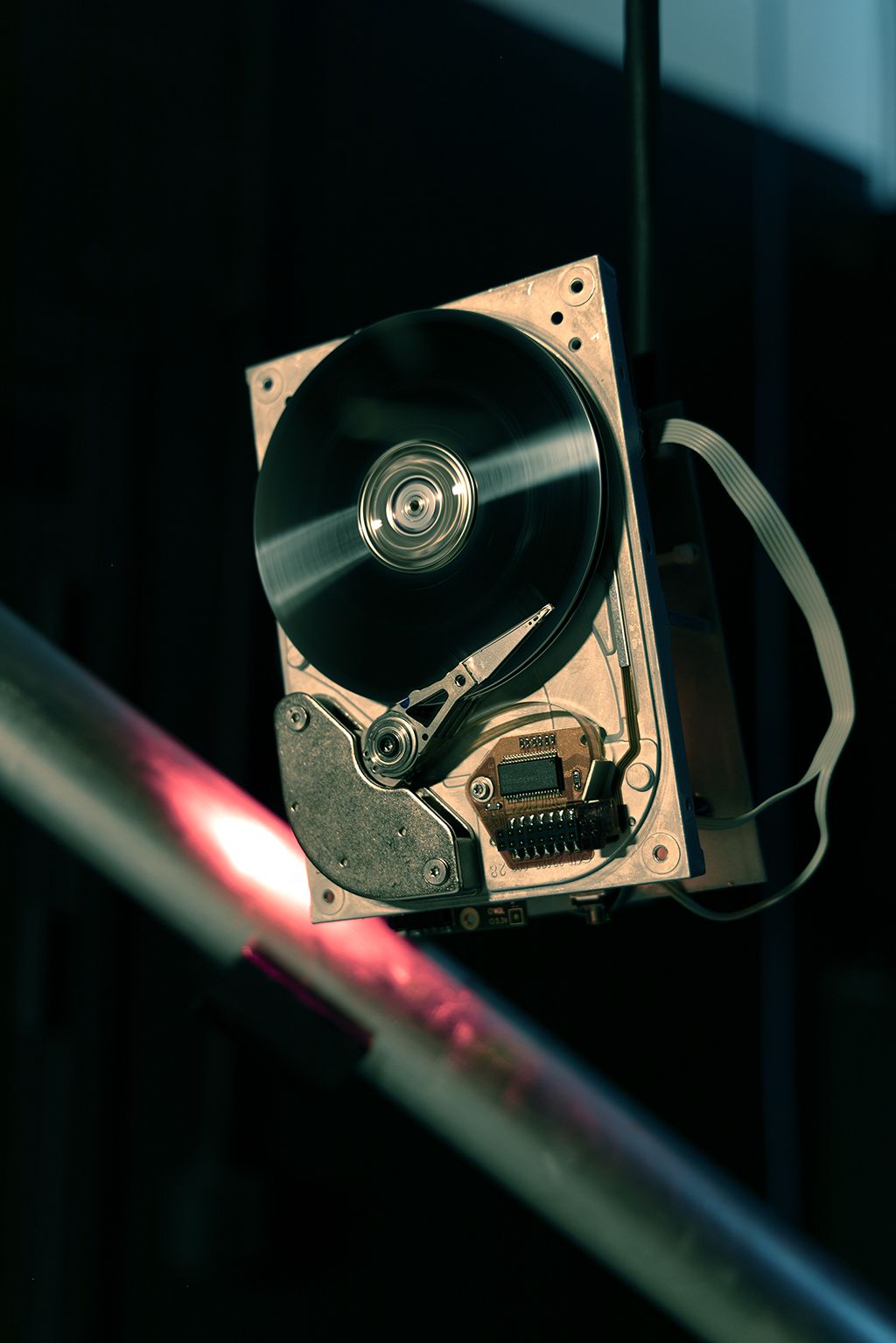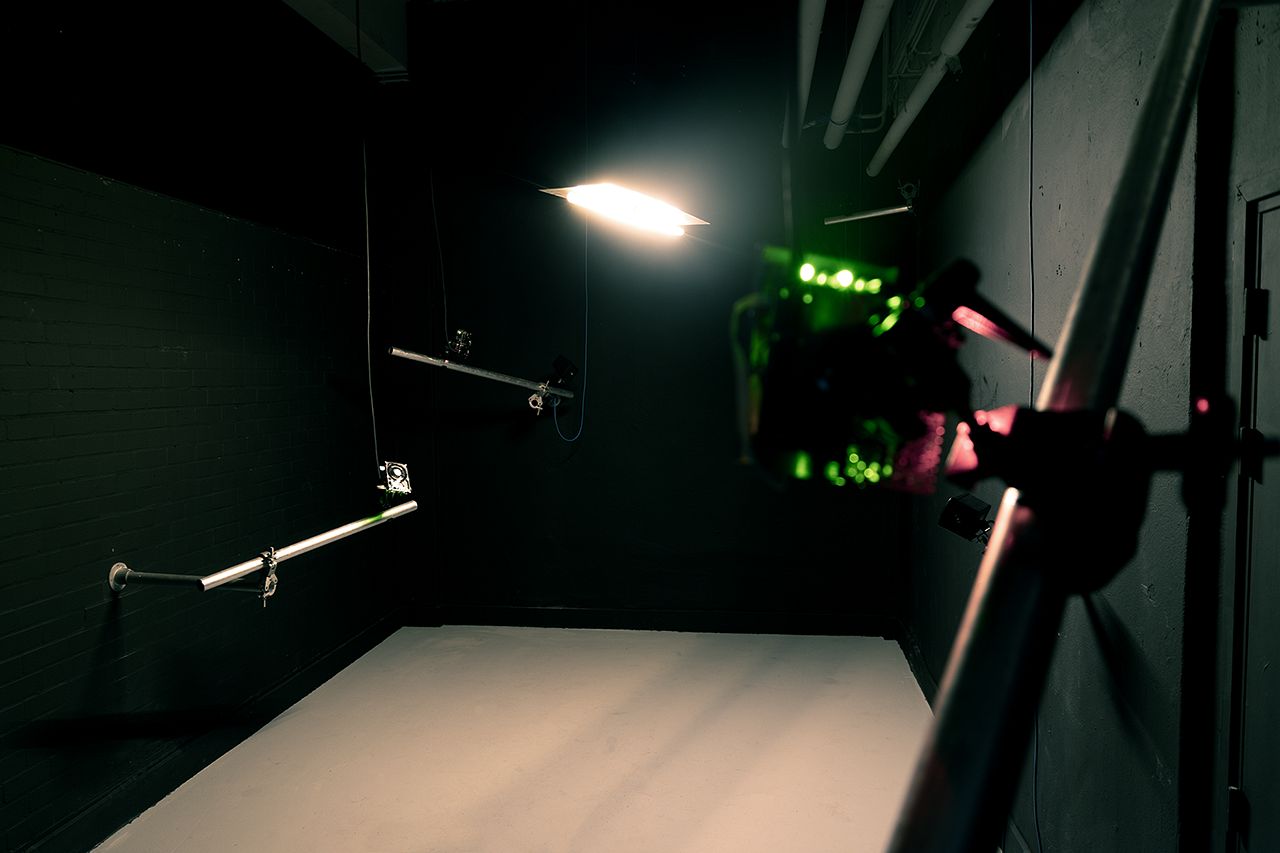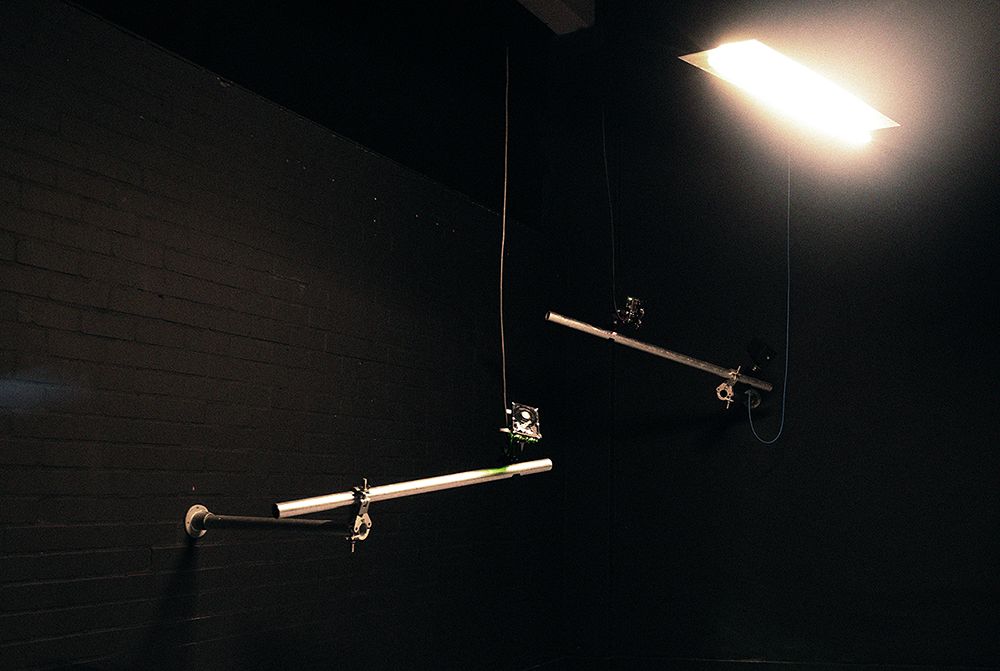
Myles Merckel
Keywords: Sound installation, Listening as research, Nature interface
Magnetic_Zoology is a sound environment in which the compressed and distorted songs of birds, archived within the world's largest database of nature recordings, communicate with the technology upon which they are captured. Three hard drives perch within the space, utilising the same mechanics that once encoded tiny magnetic particles with binary data, to now sing synthetic bird songs. This generates a new soundscape, one that is detached from any recognisable natural world. It is a continuous composition of the gritty fragments of a global history's worth of recorded soundscapes, in communication with the mechanical tweeting of a technology intended to be forgotten. There is an uncanny familiarity to this sound, nature is now rarely heard without the artefacts of man-made noise polluting it. Magnetic_Zoology exploits this blur between the natural and synthetic, leaving doubt to the source of every sound.
Documentation by Aaryan Sinha
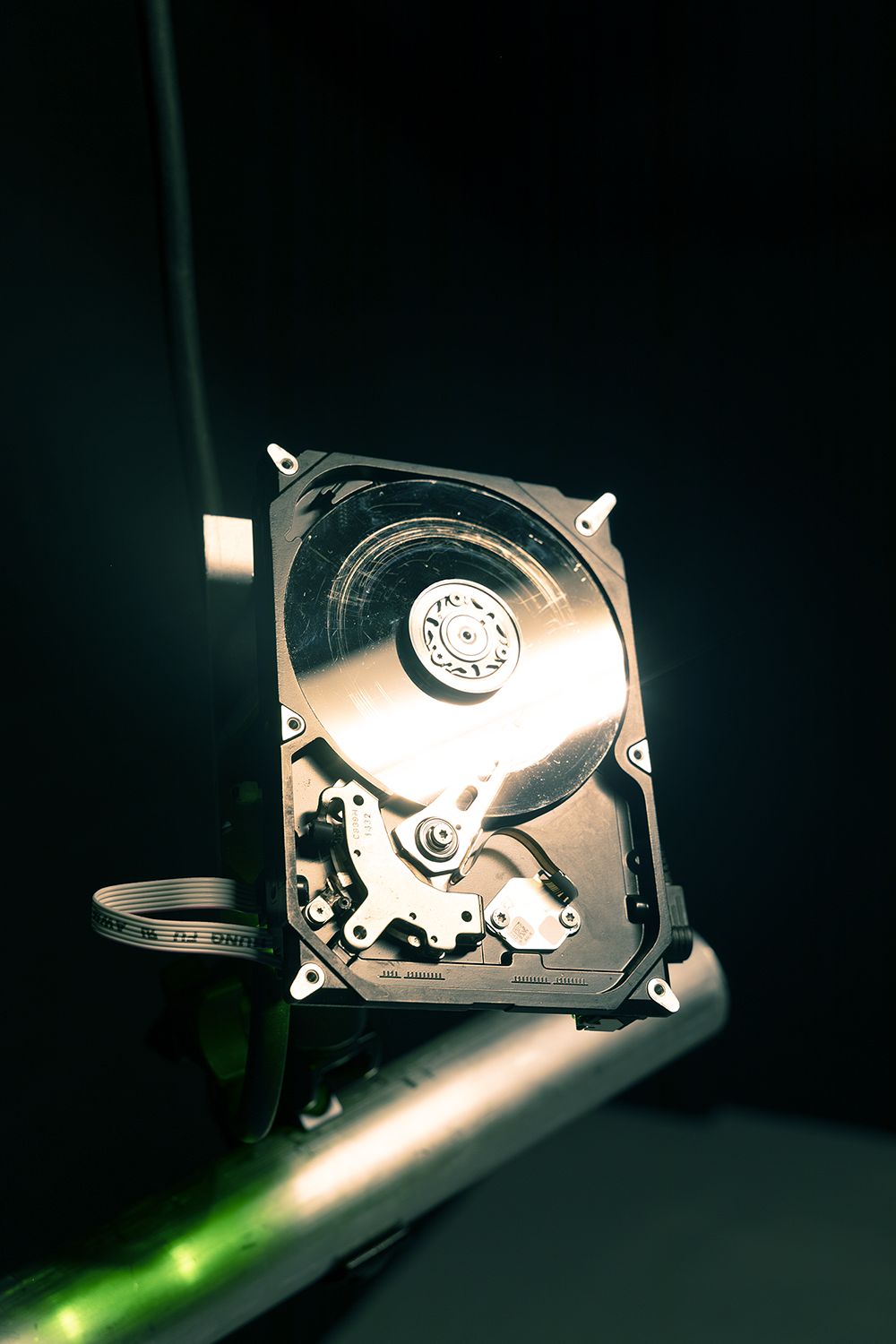
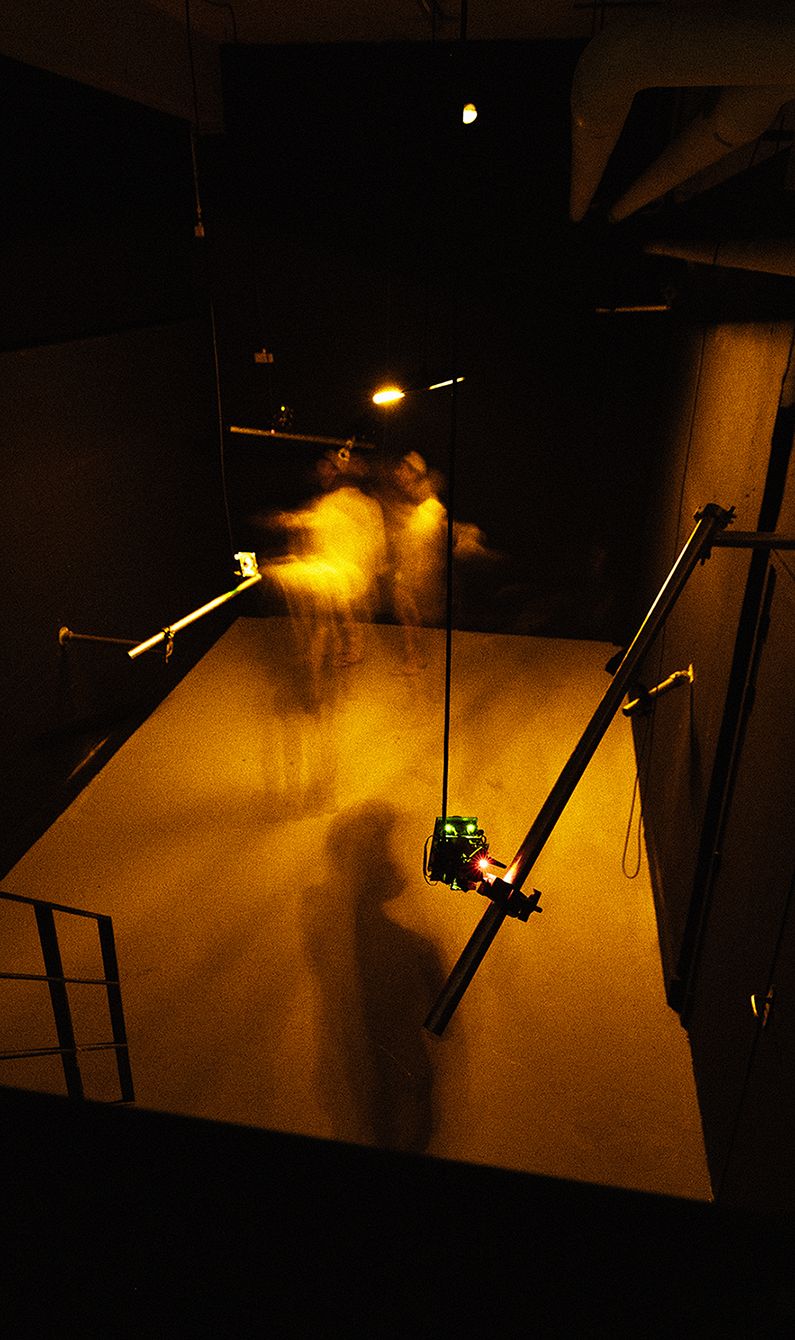
As the natural world fragments, there is an urge to compress what remains into zoos, conservation centres and digital archives. Amidst this scramble to capture and catalogue all the living world, the media on which is it recorded and stored becomes ignored, leaving nameless traces forever imprinted within the archives. These traces are artefacts of media, a reminder that archiving is not an ephemeral process of collective memory construction, but rather a very material transition between various states of energy. Where complex pulses of biological energy informed by 150 million years of evolutionary history, become compressed into bits and bytes of encoded binary data, stored as minuscule magnetic particles upon the platter of a hard drive.
This transition of energy, like every other, comes with a penalty. The relocation of an entire planet's biological life into reflective discs 88.9mm in diameter requires a loss of information. Microscopic grains of magnetic material cannot capture the natural world in the same definition with which we experience it, but it can compress it. Birds that have forever sung their songs at opposite ends of the earth, now find themselves singing beside each other, separated on 250 nanometer-wide magnetic data tracks spinning at around 7500 revolutions per minute.
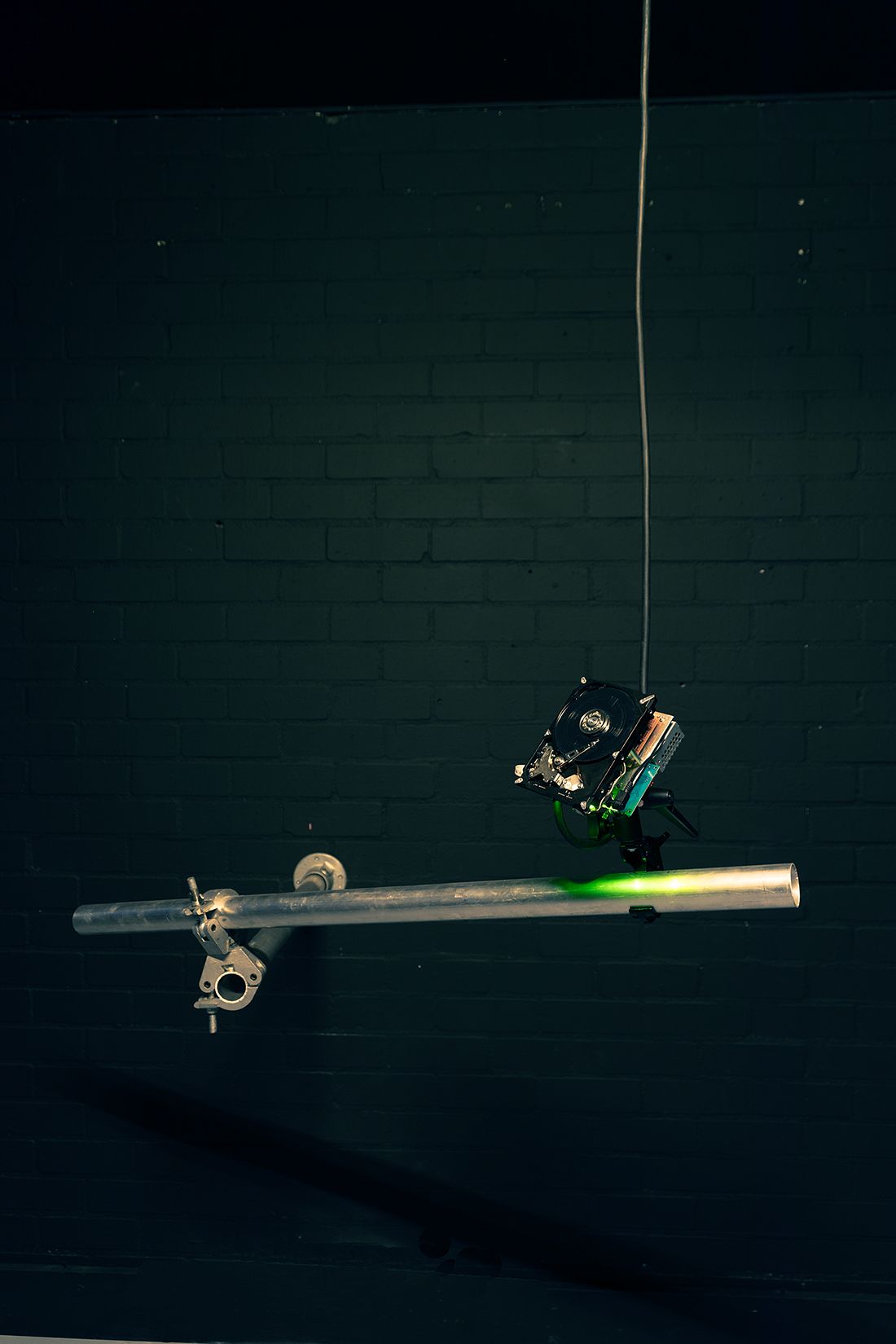
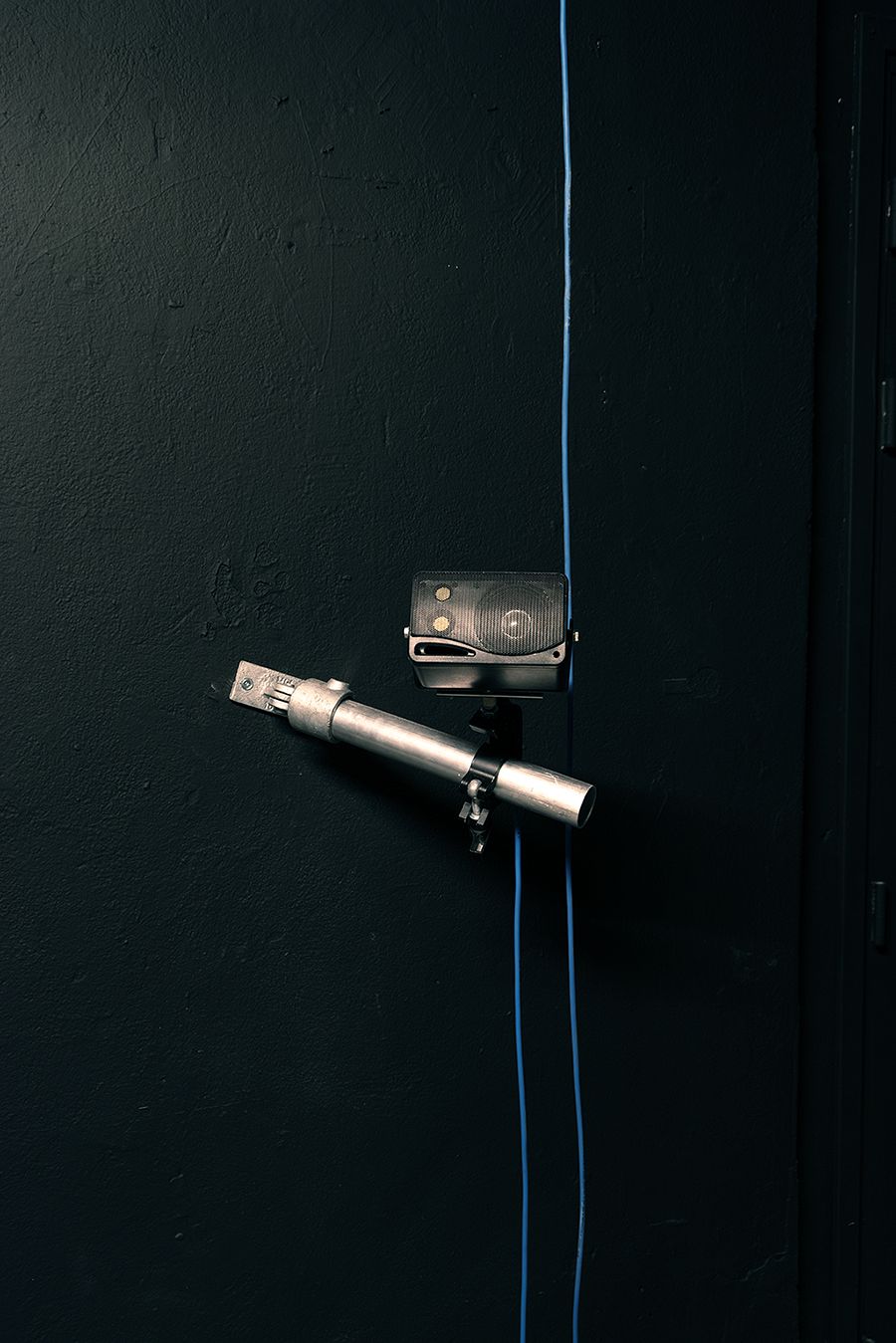
Conserving nature in this way creates a new kind of zoo, one with an even greater dislocation of environment and even more radical compression of the earth. Without any of the synthetically replicated environments that fill zoos, hard drives now store an even greater plethora of animals from a vast array of places, cultures and even time periods. And now, with every new fragment of nature inscribed into an invisible track, a tiny trace of the media gets inscribed with it. Each grain of clipping distortion, microphone jitter and noise reduction algorithm become digital signatures that tint our future understanding of the natural world.
